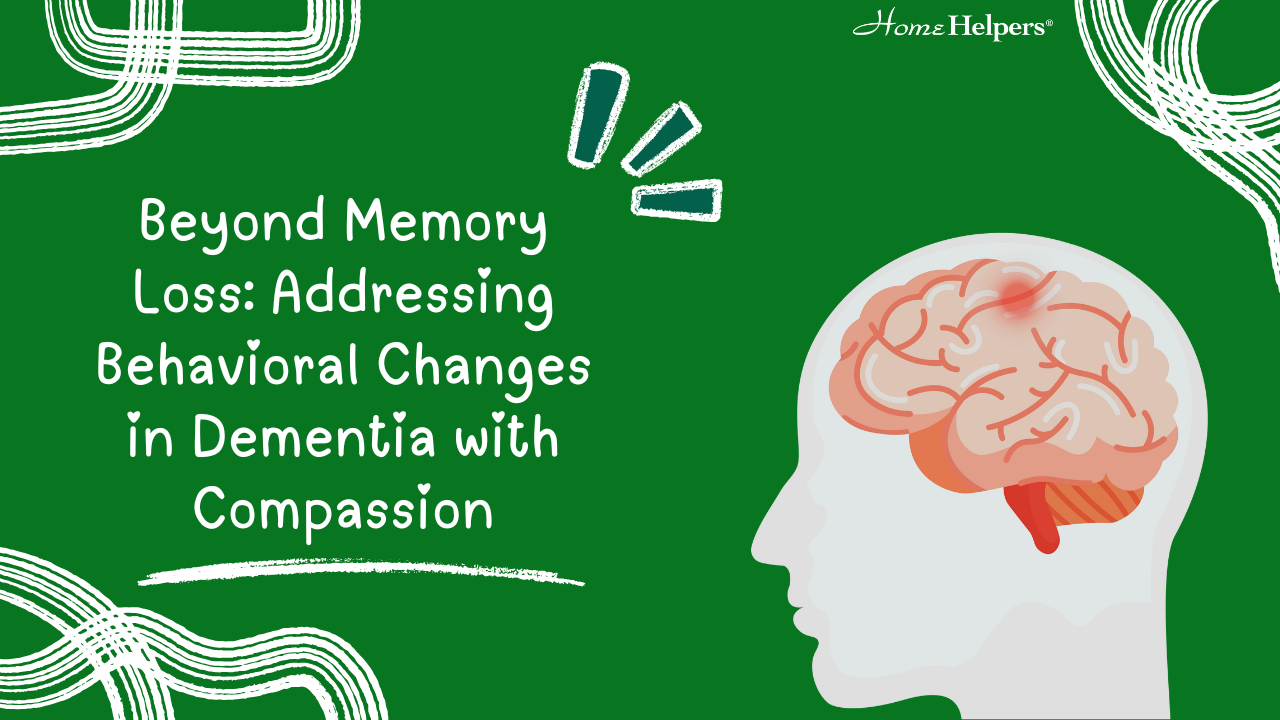Beyond Memory Loss: Addressing Behavioral Changes in Dementia with Compassion in Martinsburg, WV

Author: Home Helpers Martinsburg
When people hear the word “dementia,” memory loss is usually the first symptom they think of. But for many families here in Martinsburg and the Eastern Panhandle, the most difficult changes aren’t related to memory at all — they’re the shifts in mood, personality, and behavior. A loved one who was once outgoing may suddenly withdraw. Moments of frustration or agitation may arise unexpectedly. These changes can be challenging, but with the right understanding and compassionate approach, families can navigate them while maintaining dignity and connection.
Why Behavioral Changes Occur
Dementia affects more than just the memory center of the brain — it also impacts areas responsible for emotions, judgment, and behavior. This means your loved one’s perception of the world changes, which can lead to:
- Confusion and Misinterpretation: Misunderstanding conversations or misreading social cues, which may cause frustration.
- Fear or Anxiety: Triggered by unfamiliar environments, new caregivers, or changes in routine.
- Aggression or Irritability: Sometimes a response to pain, discomfort, or overstimulation.
- Withdrawal or Apathy: Losing interest in hobbies or social activities once enjoyed.
The Alzheimer’s Association (2024) notes that these behavioral changes are symptoms of the disease, not intentional actions.
Responding with Compassion
When behavioral changes arise, the focus should shift from correcting the behavior to understanding the root cause. Strategies include:
- Pause and Evaluate
Look for possible triggers such as hunger, fatigue, discomfort, or too much sensory input. - Maintain a Calm Presence
Use a gentle tone, make eye contact, and avoid sudden gestures to help your loved one feel safe. - Acknowledge Feelings
Even if the details are unclear, validate their emotions: “I can see you’re upset, and I want to help.” - Redirect Instead of Confronting
Guide them toward a soothing activity or familiar environment instead of engaging in an argument.
Creating a Supportive Home Environment
For families in Martinsburg, simple changes can make a big difference:
- Reduce background noise and clutter.
- Use consistent lighting to prevent confusing shadows.
- Keep treasured personal items nearby for comfort and familiarity.
The National Institute on Aging (2023) emphasizes that predictable environments can help reduce anxiety and agitation.
Supporting the Caregiver
Caring for someone experiencing behavioral changes can be emotionally exhausting. Remember to:
- Schedule breaks with the help of respite care services.
- Join local caregiver support groups in Berkeley or Jefferson counties.
- Practice mindfulness or breathing exercises to manage stress.
Home Helpers® Home Care of Martinsburg offers experienced, trained caregivers who specialize in dementia care — giving family caregivers peace of mind and time to recharge.
When to Seek Additional Help
If challenging behaviors persist or intensify, consult a healthcare provider. They can recommend care programs, therapies, or medications to improve comfort and quality of life.
Final Thoughts
Dementia care is about more than memory — it’s about meeting your loved one where they are, emotionally and behaviorally. With patience, understanding, and professional support, Martinsburg families can ensure their loved one continues to feel valued, safe, and connected.
If your loved one in Martinsburg is showing signs of behavioral changes related to dementia, our compassionate caregiving team can help. Call Home Helpers® Home Care of Martinsburg at 304-433-8000 to learn more about our personalized dementia care services.
References
Alzheimer’s Association. (2024). Behavioral and psychological symptoms of dementia (BPSD). Retrieved from https://www.alz.org/help-support/caregiving/stages-behaviors
National Institute on Aging. (2023). Caring for a person with dementia: Understanding behaviors. Retrieved from https://www.nia.nih.gov/health
